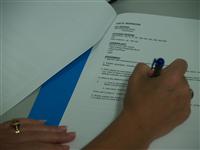
Why Study Fiction Writing?
Fiction writing is a large proportion of the book and eBook market. In recent years, we have seen a massive growth and interest in fiction stories, due to promotions on social media and changing trends in the writing industry.
Fiction writing includes writing books, ebooks, short stories, articles, blogs, vlogs, content etc.
Fiction is writing that includes imaginary characters, events and/or settings created by the writer.
There are so many different types of fiction writing, such as -
- Fantasy
- Fairy Tales
- Fables
- Myths
- Legends
- Science Fiction
- Westerns
- Drama
- Romance
- Comedy
- Horror
- Crime
- Suspense
- Erotica
- Romantasy
- And many other genres.
This fiction writing course will help you to develop and improve your writing skills in the fiction genre.
Who Is This Course Suitable For?
- This course is a great start for the aspiring writer - it will enhance your confidence through tutor support and encouragement.
- Or existing writers who want to improve their writing.
- Workshop your work - gain great insights and informative critiques.
- Builds confidence.
- Improves writing skills and fundamentals involved in the creative writing process.
- Well-suited to writers wanting a better understanding of genres, modes of writing and writing styles
What Will You Learn in This Course?
One aspect of this course involves both factual information geared to developing an understanding of processes. Another major part of this course involves you undertaking practical tasks of writing pieces of your own fiction; and analyzing the writing of other authors.
Fiction is writing that encompasses imaginary characters, events and/or settings created by the writer. All of the components of a fictitious story do not necessarily need to be fictitious though:
- Imaginary characters might be set in a real world setting such as a well-known city or a particular country.
- Characters might be fictitious but set in a “real” event. For example, you might write about the experiences of a fictitious character during World War II.
- Real characters may be used for a fictitious story that embraces an imaginary event or setting (e.g. a story about William Shakespeare travelling through time; or something more realistic, like a summer’s holiday at a fictitious beach resort, taken by a famous historical figure such as Mozart).
In this course you will study various types of fiction writing and learn how to apply various techniques to hone your craft. The course also looks at the nitty gritty of how to go about submitting a manuscript and getting your work published.
- Learn to write fiction from our highly experienced tutors.
- Develop your creativity with this Fiction Writing course.
- Improve your fiction writing skills with this great online course.
- Learn the basics of plot development, characterisation and developing your own style.
- Study different genres of writing and identify the characteristics that set them apart from each other.
- Learn how to plan a novel and submit a manuscript.
Above all, learn how to turn your germ of an idea into a potentially publishable work.
This course is suitable for professional/career development, CPD or personal interest.